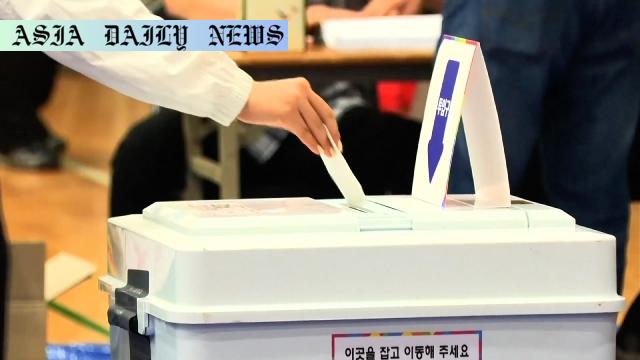South Korean election follows Yoon Suk-yeol’s ousting as voters decide between Lee Jae-myung and Kim Moon-soo amid economic concerns.
South Korean voters are casting ballots for a new president after previous administration faced turmoil.
Key issues include South Korea’s struggling economy and the public’s reception of Yoon Suk-yeol’s controversial leadership.
The election pits opposition Democratic Party’s Lee Jae-myung against ruling People Power Party’s Kim Moon-soo.

South Korean Voters Cast Ballots for a New President
South Korean voters headed to the polls Tuesday to elect their next president amid intense political and economic challenges. This election follows the controversial ousting of Yoon Suk-yeol from office, creating a political climate charged with both hope and skepticism.
Over 14,000 polling stations opened nationwide at 6 AM, welcoming voters across urban and rural areas. Central Seoul became the focal point as citizens began to vote early in the morning, showcasing civic engagement as South Korea faces one of its toughest political crossroads in recent years.
The Candidates: Lee Jae-myung vs. Kim Moon-soo
This presidential election is widely viewed as a showdown between two dominant candidates with distinct visions for the country. Representing the Democratic Party, Lee Jae-myung aims to resonate with voters who are dissatisfied with the existing governance. On the other hand, conservative Kim Moon-soo represents the ruling People Power Party, emphasizing continuity and resilience amid national and economic crises.
Economic Struggles as the Core Issue
The election is largely defined by South Korea’s sluggish economy, which remains a key concern for the electorate. Rising unemployment, inflation, and stagnant growth are weighing heavily on the public consciousness, making economic policy a central theme in the candidates’ platforms.
Public Sentiment Toward Yoon Administration
The shadow of the Yoon administration also looms large, with public sentiment playing a critical role. Yoon Suk-yeol’s removal from office following last year’s declaration of martial law has left a divisive legacy, and the future president will have to tackle issues of transparency and accountability to redefine trust in governance.
As voters and candidates navigate this crucial moment, the outcome of the election could set the tone for South Korea’s political and economic trajectory in the years to come.
Commentary
The Significance of the South Korean Election
The South Korean presidential election represents a turning point for the nation, offering a chance to address both economic and political challenges. With the previous administration marred by controversy and economic stagnation, the stakes could not be higher for the leading candidates.
Public Expectations and Responsibility
South Koreans expect their next leader to not only revive the economy but also restore integrity to the political system. Trust in governance has eroded following the tumultuous tenure of Yoon Suk-yeol, and this election is an opportunity to rekindle hope and faith in political leadership.
Implications for the Future
This election is not just about choosing a president; it is about defining South Korea’s future. From economic reforms to social policies, the incoming administration will have the formidable task of steering the nation through both internal and external challenges.
The world watches as South Korea navigates this pivotal chapter, and the decisions of its people will undoubtedly shape its destiny.


